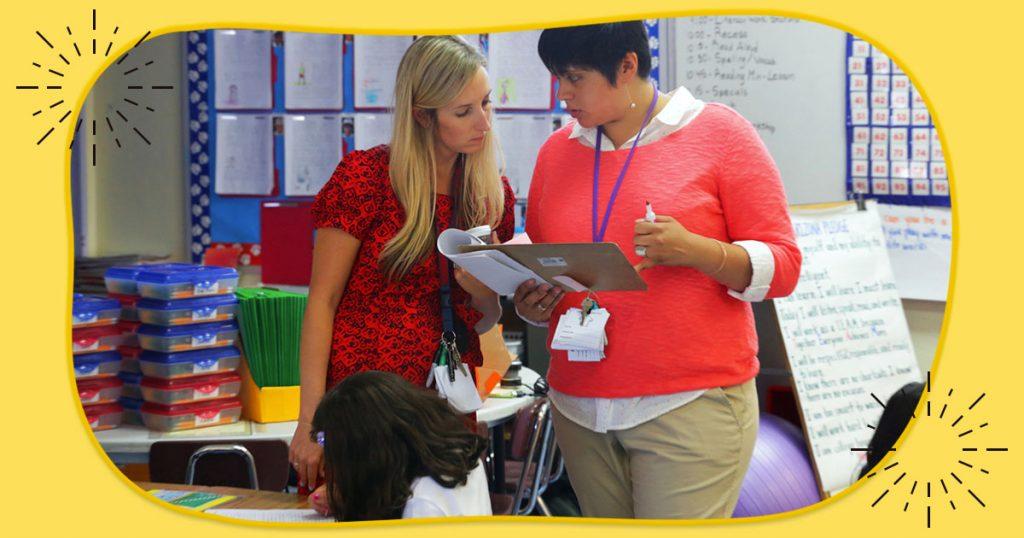Being an educator is one of the most rewarding careers you can choose. As a teacher, you share knowledge and guide future generations. It’s more than just teaching subjects; it’s about sparking curiosity, encouraging critical thinking, and teaching important values. Anyone who loves learning and wants to make a difference can become a teacher, helping others to grow and learn.
The best part of being a teacher is the big impact you have on your students. Seeing them understand difficult ideas, solve problems, and reach their goals is incredibly fulfilling. If you want to use your knowledge to make the world better, a career in education might be perfect for you. You can start directly as a teacher or begin as an apprentice. Either way, you have the chance to inspire and educate others.
What is an Apprentice Teacher?
An apprentice teacher is someone who is learning to become a certified teacher through hands-on experience. They work under the guidance of experienced teachers, getting real-life practice in classrooms while also taking classes themselves. This mix of practical and academic learning helps them apply what they study directly to their teaching.
The main tasks of an apprentice teacher include helping with lesson planning, managing the classroom, and teaching students. They also watch their mentor teachers, get feedback, and slowly take on more teaching duties as they gain confidence.
Apprentice teachers are different from certified teachers because they are still in training. They do many of the same things as certified teachers but with supervision and support. This helps them develop their skills effectively.
After finishing their apprenticeship program, apprentice teachers usually become certified teachers. This means they have completed all the necessary training and are ready to manage their own classrooms. This step marks the start of their professional teaching careers.
Steps and Qualifications for Becoming an Apprentice Teacher
If you want to become an apprentice teacher, here are the steps and requirements you need to follow:
- Educational Background: You usually need at least a high school diploma or its equivalent. Some programs might also prefer or require some college courses or a degree in a related field.
- Application Process: You’ll need to apply to an apprenticeship program. This means filling out an application form, sending in your transcripts, and maybe writing a personal statement about why you want to be a teacher.
- Background Check: Since teachers work closely with children, most programs will require a background check to make sure students are safe.
- Interview: Some programs may ask you to do an interview. This helps them see if you’re committed and a good fit for the role.
- Training and Coursework: After you’re accepted, you’ll start your apprenticeship. This includes working in a classroom and taking classes on teaching methods, child development, and other important topics.
- Mentorship: You’ll be paired with a mentor teacher who will guide you, give feedback, and help you develop your teaching skills.
- Evaluation: Your progress will be checked regularly through observations, feedback from your mentor, and assessments of your coursework.
- Certification: Once you complete the apprenticeship program, you’ll be eligible to become a certified teacher. This usually involves passing an exam and meeting any additional state-specific requirements.
You can begin a fulfilling career as a teacher by fulfilling these requirements and following these steps.
Rewards for Apprentice Teachers
Becoming an apprentice teacher has many benefits for both you and your students. Here are some of the main rewards:
- Impact on Students: As an apprentice teacher, you play a crucial role in students’ lives. You help them learn new things, overcome challenges, and grow academically and personally. Seeing your students succeed is incredibly rewarding.
- Personal Growth: Apprenticeships help you grow as a person. You’ll learn vital skills like communication, leadership, and problem-solving, which are useful both in and out of the classroom.
- Professional Development: Working with experienced teachers lets you learn effective teaching methods and best practices. This hands-on experience is key to preparing you for a full-time teaching career.
- Networking Opportunities: During your apprenticeship, you’ll meet other educators and professionals. These connections can help you find future job opportunities and offer professional support.
- Sense of Fulfillment: Teaching gives you a deep sense of purpose. You are contributing to the education and growth of future generations, which is incredibly fulfilling.
Salary Expectations for Apprentice Teachers
It’s important to consider the salary when becoming an apprentice teacher. Pay can vary depending on where you are and the program you’re in. Usually, you’ll earn a modest stipend or hourly wage to cover basic living costs. This amount is less than what fully certified teachers make, but the experience and training you receive are invaluable. On average, apprentice teachers in the United States earn around $61,415 per year.
Once you complete your apprenticeship and become a certified teacher, you can expect a higher salary. The exact amount will depend on factors such as your location, the school district, and your education and experience level.
Starting as an apprentice teacher is the first step toward a lasting career in education. You’ll learn valuable skills, gain experience, and make a real difference in students’ lives. The rewards, both personal and professional, are worth it.
